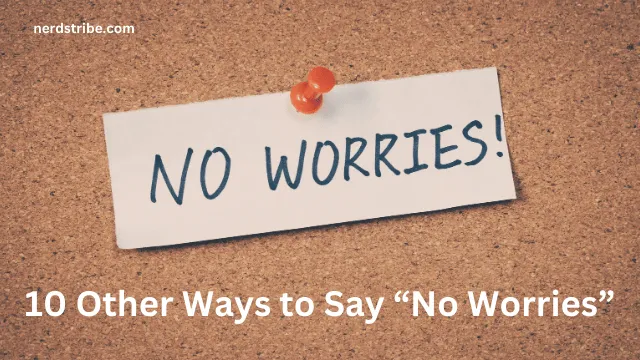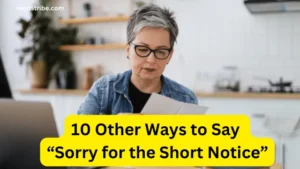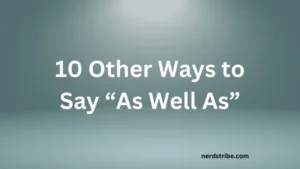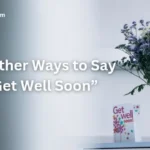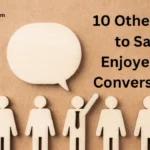We live in a world where words carry the power to build connections, diffuse tension, and foster positivity. “No worries” is one such phrase that has found its way into our daily conversations, offering reassurance, comfort, and a touch of casual warmth. But as versatile as it is, it’s easy to overuse, and sometimes it might not fit the tone or situation perfectly. Wouldn’t it be great to have a broader vocabulary for expressing similar sentiments?
Whether you’re responding to an apology, brushing off a minor inconvenience, or trying to keep things lighthearted, finding alternative ways to say “No worries” can elevate your communication. Different scenarios call for different tones—some may require more professionalism, while others might benefit from a more personal touch. Having a few fresh alternatives up your sleeve can help you leave a lasting impression.
This blog dives into 10 creative and practical alternatives to “No worries” that you can use in a variety of situations. These phrases will not only add diversity to your responses but also help you sound more thoughtful and tailored in your interactions. Let’s explore how you can keep your conversations engaging, thoughtful, and worry-free!
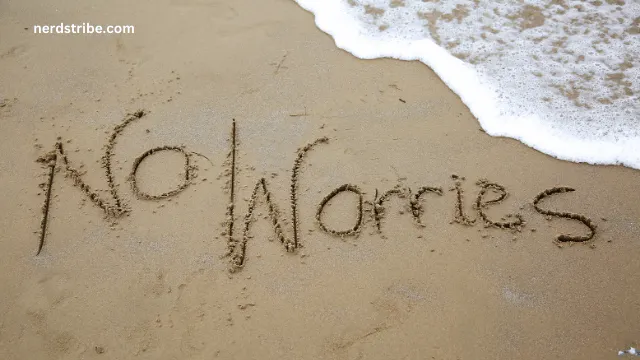
Contents
- 1 1. “It’s All Good”
- 2 2. “No Problem at All”
- 3 3. “Don’t Worry About It”
- 4 4. “It’s No Big Deal”
- 5 5. “Think Nothing of It”
- 6 6. “No Need to Apologize”
- 7 7. “You’re Welcome Anytime”
- 8 8. “Happy to Help”
- 9 9. “Forget About It”
- 10 10. “It’s My Pleasure”
- 11 Conclusion
- 12 FAQs
- 12.1 Why should I use alternatives to “No worries”?
- 12.2 Which alternative works best for professional emails?
- 12.3 Can these alternatives be used in formal settings?
- 12.4 Are these phrases universally understood?
- 12.5 How can I choose the right alternative?
- 12.6 Will using these alternatives make me sound more thoughtful?
1. “It’s All Good”
Casual and upbeat, this phrase reassures the other person that everything is fine.
- Example: “Thanks for letting me know. It’s all good!”
- Essential: Perfect for informal situations, conveying a laid-back tone.
2. “No Problem at All”
This phrase balances casual and polite, making it great for both professional and personal settings.
- Example: “Thanks for understanding the delay.” / “No problem at all!”
- Essential: It reassures without sounding dismissive.
3. “Don’t Worry About It”
A slightly more direct way of expressing that there’s no need to stress.
- Example: “I’m sorry I forgot to call you back.” / “Don’t worry about it—it happens.”
- Essential: Best for calming someone who feels guilty.
4. “It’s No Big Deal”
This alternative minimizes the situation and keeps things lighthearted.
- Example: “I’m sorry for running late!” / “It’s no big deal—glad you’re here now.”
- Essential: Useful for casual and friendly exchanges.
5. “Think Nothing of It”
A classic and slightly formal way to assure someone there’s no need for concern.
- Example: “Thanks for helping me out!” / “Think nothing of it—it was my pleasure.”
- Essential: Adds a touch of elegance to your response.
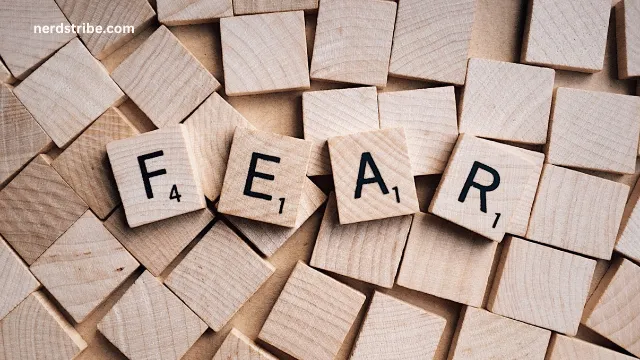
6. “No Need to Apologize”
This phrase explicitly relieves someone from feeling guilty.
- Example: “I’m sorry for interrupting.” / “No need to apologize—what’s up?”
- Essential: Works well in both professional and personal interactions.
7. “You’re Welcome Anytime”
A warm and inviting response that makes the other person feel appreciated.
- Example: “Thanks for the last-minute advice!” / “You’re welcome anytime!”
- Essential: Great for creating a positive impression.
8. “Happy to Help”
This alternative emphasizes your willingness to assist without making it seem like a burden.
- Example: “Thanks for fixing that error for me.” / “Happy to help—let me know if you need anything else.”
- Essential: Excellent for professional settings where you want to maintain a helpful tone.
9. “Forget About It”
This casual phrase is ideal for dismissing a small issue or favor.
- Example: “Thanks for covering for me today!” / “Forget about it—it’s no trouble at all.”
- Essential: Perfect for informal conversations among friends or colleagues.
10. “It’s My Pleasure”
Polite and professional, this phrase adds a touch of warmth to your response.
- Example: “Thanks for organizing the meeting.” / “It’s my pleasure—glad to help.”
- Essential: A versatile option that works in various settings.
Conclusion
“No worries” is a simple yet powerful phrase that we often use to reassure and comfort. But over time, repeating the same response can feel monotonous and less impactful. Exploring alternative ways to say “No worries” not only keeps your conversations fresh but also allows you to tailor your response to the situation and the relationship you share with the other person.
By incorporating these 10 alternatives into your vocabulary, you can express yourself more thoughtfully and effectively. Whether it’s in a professional email or a casual chat, these phrases ensure your communication remains engaging, empathetic, and relevant. So, the next time you’re tempted to say “No worries,” try switching it up with one of these creative options!
FAQs
Why should I use alternatives to “No worries”?
Using alternatives can make your responses more engaging and suitable for different tones or contexts, helping you communicate more effectively.
Which alternative works best for professional emails?
“Happy to help” or “No problem at all” are excellent choices for professional emails as they maintain a polite and positive tone.
Can these alternatives be used in formal settings?
Yes, phrases like “It’s my pleasure” and “Think nothing of it” work well in formal or semi-formal contexts.
Are these phrases universally understood?
Most alternatives are widely recognized and understood, but it’s always good to consider cultural nuances when communicating internationally.
How can I choose the right alternative?
Consider the context, tone, and relationship. For example, use “It’s all good” in casual chats and “Happy to help” in professional scenarios.
Will using these alternatives make me sound more thoughtful?
Yes, varying your responses shows that you’re intentional and considerate in your communication, which can leave a positive impression.

